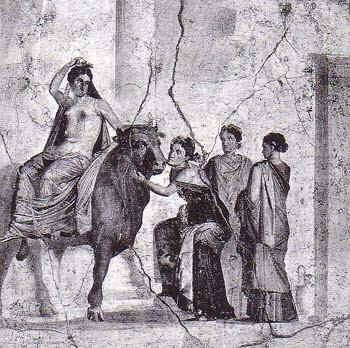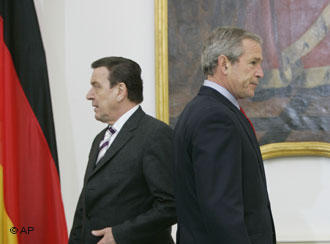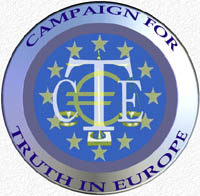
NOVEMBER 2005

Sweden hits back at commission in trade union row
07.10.2005 - 10:14 CET
EUOBSERVER / BRUSSELS - Sweden has
condemned an attack on its labour rules by the internal
market commissioner and threatened to withdraw its
support for the EU services directive - championed by
Brussels.
Internal market commissioner Charlie McCreevy
said on Wednesday (5 October) that the European
Commission would stand against Sweden in a legal case
over the country's collective wage agreements.The EU's
top court is supposed to decide whether Stockholm can
refer to collective agreements when dealing with
companies employing foreigners to work in Sweden.
But Sweden has reacted furiously
to Mr McCreevy’s statements.
Swedish industry minister Thomas Ostros suggested Mr
McCreevy's statement was viewed as an attack on the most
successful social models in Europe. "To hear that
the commission is behind a lunge against a member state
which has regulated its labour market in a different way
than most other member states, but with the same purpose
and goal, is unacceptable", Mr Ostros wrote in a
letter to Brussels.
Scandinavian countries generally do not regulate the
labour market by law, but by agreements between the trade
unions and employers. Mr Ostros added he hoped the
opinion was of a single commissioner, not the line of the
whole college, as "a lot of member states will be
worried and have a hard time explaining to their citizens
what European collaboration is about". The minister
also suggested the dispute could "affect the Swedish
governments possibility to work in a constructive way
together with the commission on the service
directive."
Surprise in the commission
Mr McCreevy’s statement also came as a surprise to
the commission itself which has not yet made up its mind
on the matter. It is to be consulted by the court’s
judges before they take a decision.
However a spokesperson confirmed that commission
officials have not yet drawn up a common position on the
case yet. "The Commission needs to agree on its
opinion which it will present to the court, and the
discussion about this has so far not been featuring on
the agenda up until December," said the spokeswoman.
Progress on the services directive, which is strongly
pushed by Mr McCreevy himself, now threatens to become
embroiled in the issue. The law, which aims to cut down
barriers in Europe's services markets, has turned out to
be very controversial but Sweden has so far proved to be
one of the countries more supportive of it. According to
an EU official, the recent war of words between Brussels
and Stockholm could seriously affect the ongoing
legislative work, and it could also come up at the
forthcoming informal summit of EU leaders at Hampton
Court near London in 27-28 October. Brussels is set to
hammer out its report about the future of the European
social model on 20 October and present it to the EU
leaders at the summit.
update:The president of the
European Commission has said his internal market
commissioner was misunderstood when earlier this month he
appeared to
challenge a key part of Sweden's social model.
Article >> http://euobserver.com/?aid=20104&rk=1
 Gerhard Schrõder
spoke out:
Gerhard Schrõder
spoke out:
"I can think of a recent disaster that shows what
happens when a country neglects its duties of state
towards its people," said Schröder.... My post as
chancellor, which I still hold, does not allow me to name
that country but you all know that I am talking about
America," he said to laughter and applause.
Schröder fell out with Bush over the war in Iraq when he refused to commit German troops to the war and relations between the two leaders have remained chilly.
In another jab at the US president on Wednesday, Schröder spoke of British Prime Minister Tony Blair as "my British friend, who also has other friends," in a reference to the Anglo-American on Iraq.
EU Plans More Efficient Industrial Policy
October 05, 2005 08:50 AM ET
http://news.moneycentral.msn.com/printarticle.asp?Feed=AP&Date=20051005&ID=5167671
BRUSSELS, Belgium (AP) - The European Union on Monday
announced new policies aimed at making European industry
more efficient and flexible, rejecting pleas from France
that the EU do more to protect the bloc's industry
against competition from Asia and the Americas. "We
are not going to shelter industry from competition,"
EU Industry Commissioner Guenter Verheugen said, hitting
back at French President Jacques Chirac, who criticized
the European Commission for not protecting jobs in
Europe.
"European industries can only benefit from open
markets," Verheugen said.
The EU plan sets out seven new policy initiatives for the
25-nation bloc aimed at countering cheaper, more flexible
industries in such new economic dynamos as China, India,
and Brazil. Part of the plans, including drafting new
intellectual property rights, fighting piracy of goods,
and deregulation of such sectors as chemicals
registration, are already in the works. Others depend on
new EU funding on space research and telecommunications
technologies.
Verheugen said the new plans did not involve throwing
millions of euros (dollars) in new aid at industry.
Instead, they would represent a new commitment to cut
red-tape, boost research and education, improve market
access and restructure industry to be more flexible.
"One thing we don't want to do is to go back to
import quotas and protective tariffs," he said.
"Manufacturing has a vital role to play in securing
Europe's future prosperity," Verheugen told
reporters. "There is no way back to the old days of
protectionism and subsidies."
Industry and business group UNICE, which represents 20
million small, medium and large companies in Europe said
the EU plans go "a step further toward the goal of
strengthening Europe's competitiveness," and urged
EU nations to adopt them "without delay."
French President Jacques Chirac severely criticized the
European Commission, the EU's executive body, on Tuesday,
saying it was doing little to defend European interests.
The French government, which has traditionally had a more
interventionist economic policy, appealed to Brussels
after American computer and printer maker Hewlett-Packard
Co. said it would cut thousands of job in Europe,
including France. The French government has in past years
also balked at attempts to open up European energy,
services and other key sectors to competition.
Verheugen said the EU executive could not prevent
companies from cutting jobs, but could help in
encouraging industry to deal positively with economic
downturns. "What we ideally want to do is to adopt a
preventative, pro-active policy," Verheugen said.
"The really important question in all of this is
that we have to accept that change is inevitable."
The EU's manufacturing industry, which employs over 34
million people and accounts for three quarters of EU
exports, has in recent years faced increasing competition
from the new economic powers, especially China. Europe's
textile industry called on the EU to help prevent cheaper
textiles from flooding EU markets this year, after the EU
dropped most quotas on Chinese imports in January. The EU
signed a stopgap agreement with Beijing in the Spring to
try to limit the damage to EU textile makers, giving them
time to restructure.
Oxford Dictionary Enter a
word and click Search
Results from your search for semite
Displaying 1 to 2 of 2 results
1. Semite n.
a member of a people speaking a Semitic language, in
particular the Jews and Arabs.
2. anti-Semitism n.
hostility to or prejudice against Jews.
EU 'Cherry Picking'
from Rules the Voters Rejected
by Patrick Hennessy
Less than five months ago, voters in France gave the
thumbs down to the European Union's proposed new
constitution when 55 per cent rejected it in a
referendum.
A few days later, voters in the Netherlands dismissed it even more decisively, with 62 per cent saying No to the controversial treaty.
After these results from two of the EU's founder members, the constitution - which set out a blueprint for the future of the union and contained a weighty Charter of Fundamental Rights - was said by virtually all sides to be dead in the water, despite the fact that it had been endorsed by all EU heads of government.
Tony Blair breathed a sigh of relief because the French and the Dutch rejections meant that there was no point in going ahead with his plan to stage a referendum on the constitution in Britain next spring - a vote which looked impossible for him to win and which was seen by some as a possible finishing post for his time in Downing Street.
However, Brussels documents seen by The Sunday Telegraph are compelling proof of the desire of the European Commission to breathe new life into the corpse of the constitution - and in particular the Charter of Fundamental Rights.
Document COM (2005) 172 effectively insists that the provisions of the charter must be enshrined in all new EU legislation. It baldly states: "This document sets out a methodology for ensuring that the charter is properly implemented in commission proposals."
New laws proposed by Brussels will be subject to "systematic and rigorous monitoring" to ensure that they comply with the charter, the document reveals.
Eurosceptics have also seized on a footnote to page two of the eight-page document, which establishes the primacy of case law handed down by the European Court of Justice over existing laws in member states.
The footnote accepts that the charter is not legally binding, but adds: "It contains the fundamental principles which have been held to be binding in case law as general principles of community law."
Last night, Chris Heaton-Harris, the Conservative Euro MP, said: "This shows that the commission has no intention of taking any notice of the voters in France and the Netherlands, who decisively rejected their blueprint for a federal super state."
Brussels bureaucrats were simply "cherry picking" the bits of the constitution they wanted to see implemented and forcing them through by the back door, he added.
The Charter of Fundamental Rights faced heavy criticism when it was drawn up because, for example, it could give the Army and the police in Britain the right to strike for the first time.
The right to education could allow Brussels to say how British schools are run. The charter also creates new rights to social security, housing assistance, health care and environmental protection - all with potentially serious consequences for the Government and British businesses.
The charter also permits a right to asylum, potentially handing full control of the UK's asylum system to the European courts.
Last night Liam Fox, the shadow foreign secretary, demanded an urgent explanation from Jack Straw, the Foreign Secretary, about the document, as Britain currently holds the European Union's rolling six-month presidency.
"I have repeatedly made
clear my fear that the EU is determined to ignore the
results of the  two
referenda and instead press ahead with the implementation
of many elements of the Constitutional Treaty,"
he said. "This document confirms that those fears
have been fully justified. It is simply not acceptable
for EU governments and the commission to behave as though
the Constitutional Treaty had come into force."
two
referenda and instead press ahead with the implementation
of many elements of the Constitutional Treaty,"
he said. "This document confirms that those fears
have been fully justified. It is simply not acceptable
for EU governments and the commission to behave as though
the Constitutional Treaty had come into force."
A Foreign Office spokesman said last
night: "The constitution has not come into force.
We are still in the position we were in before. It is
right for the commission to ensure that anything it does
not cut across the Charter of Fundamental Rights. The
charter remains the most recent political declaration by
the governments of EU member countries about the rights
of their citizens."
The Sunday Telegraph, 16th October 2005, ECLUB
BULLETIN.
Police chief - Lockerbie
evidence was faked
Scotsman, 28 Aug '05
MARCELLO MEGA
http://news.scotsman.com/index.cfm?id=1855852005
A FORMER Scottish police chief has given lawyers a signed
statement claiming that key evidence in the Lockerbie
bombing trial was fabricated. The retired officer - of
assistant chief constable rank or higher - has testified
that the CIA planted the tiny fragment of circuit board
crucial in convicting a Libyan for the 1989 mass murder
of 270 people. The police chief, whose identity has not
yet been revealed, gave the statement to lawyers
representing Abdelbaset Ali Mohmed Al Megrahi, currently
serving a life sentence in Greenock Prison.
The evidence will form a crucial part of Megrahi's
attempt to have a retrial ordered by the Scottish
Criminal Cases Review Commission (SCCRC). The claims pose
a potentially devastating threat to the reputation of the
entire Scottish legal system.
The officer, who was a member of the Association of Chief
Police Officers Scotland, is supporting earlier claims by
a former CIA agent that his bosses "wrote the
script" to incriminate Libya.
Last night, George Esson, who was Chief Constable of
Dumfries and Galloway when Megrahi was indicted for mass
murder, confirmed he was aware of the development. But
Esson, who retired in 1994, questioned the officer's
motives. He said: "Any police officer who believed
they had knowledge of any element of fabrication in any
criminal case would have a duty to act on that. Failure
to do so would call into question their integrity, and I
can't help but question their motive for
raising the matter now."
Other important questions remain unanswered, such as how
the officer learned of the alleged conspiracy and whether
he was directly involved in the inquiry. But sources
close to Megrahi's legal team believe they may have
finally discovered the evidence that could demolish the
case against him. An insider told Scotland on Sunday that
the retired officer approached them after Megrahi's
appeal - before a bench of five Scottish judges - was
dismissed in 2002. The insider said: "He said he
believed he had crucial information. A meeting was set up
and he gave a statement that supported the long-standing
rumours that the key piece of evidence, a fragment of
circuit board from a timing device that implicated Libya,
had been planted by US agents.
"Asked why he had not come forward before, he
admitted he'd been wary of breaking ranks, afraid of
being vilified. "He also said that at the time he
became aware of the matter, no one really
believed there would ever be a trial. When it did come
about, he believed both accused would be acquitted. When
Megrahi was convicted, he told himself he'd be cleared at
appeal." The source added: "When that also
failed, he explained he felt he had to come forward.
"He has confirmed that parts of the case were
fabricated and that evidence was planted. At first he
requested anonymity, but has backed down and will be
identified if and when the case returns to the appeal
court."
The vital evidence that linked the bombing of Pan Am 103
to Megrahi was a tiny fragment of circuit board which
investigators found in a wooded area many miles from
Lockerbie months after the atrocity. The fragment was
later identified by the FBI's Thomas Thurman as being
part of a sophisticated timer device used to detonate
explosives, and manufactured by the Swiss firm Mebo,
which supplied it only to Libya and the East German
Stasi.
At one time, Megrahi, a Libyan intelligence agent, was
such a regular visitor to Mebo that he had his own office
in the firm's headquarters. The fragment of circuit board
therefore enabled Libya - and Megrahi - to be placed at
the heart of the investigation. However, Thurman was
later unmasked as a fraud who had given false evidence in
American murder trials, and it emerged that he had little
in the way of scientific qualifications. Then, in 2003, a
retired CIA officer gave a statement to Megrahi's lawyers
in which he alleged evidence had been planted.
The decision of a former Scottish police chief to back
this claim could add enormous weight to what has
previously been dismissed as a wild conspiracy theory. It
has long been rumoured the fragment was planted to
implicate Libya for political reasons.
The first suspects in the case were the Syrian-led
Popular Front for the Liberation of Palestine - General
Command (PFLP-GC), a terror group backed by Iranian cash.
But the first Gulf War altered diplomatic relations with
Middle East nations, and Libya became the pariah state.
Following the trial, legal observers from around the
world, including senior United Nations officials,
expressed disquiet about the verdict and the conduct of
the proceedings at Camp Zeist, Holland. Those doubts were
first fuelled when internal documents emerged from the
offices of the US Defence Intelligence Agency. Dated
1994, more than two years after the Libyans were
identified to the world as the bombers, they still
described the PFLP-GC as the Lockerbie bombers. A source
close to Megrahi's defence said: "Britain and the US
were telling the world it was Libya, but in their private
communications they acknowledged that they knew it was
the PFLP-GC. "The case is starting to unravel
largely because when they wrote the script, they never
expected to have to act it out. Nobody expected agreement
for a trial to be reached, but it was, and in preparing a
manufactured case, mistakes were made."
Dr Jim Swire, who has publicly expressed his belief in
Megrahi's innocence, said it was quite right that all
relevant information now be put to the SCCRC. Swire,
whose daughter Flora was killed in the atrocity, said
last night: "I am aware that there have been doubts
about how some of the evidence in the case came to be
presented in court. "It is in all our interests that
areas of doubt are thoroughly examined."
A spokeswoman for the Crown Office said: "As this
case is currently being examined by the SCCRC, it would
be inappropriate to comment."
No one from the Association of Chief Police Officers in
Scotland was available
to comment.